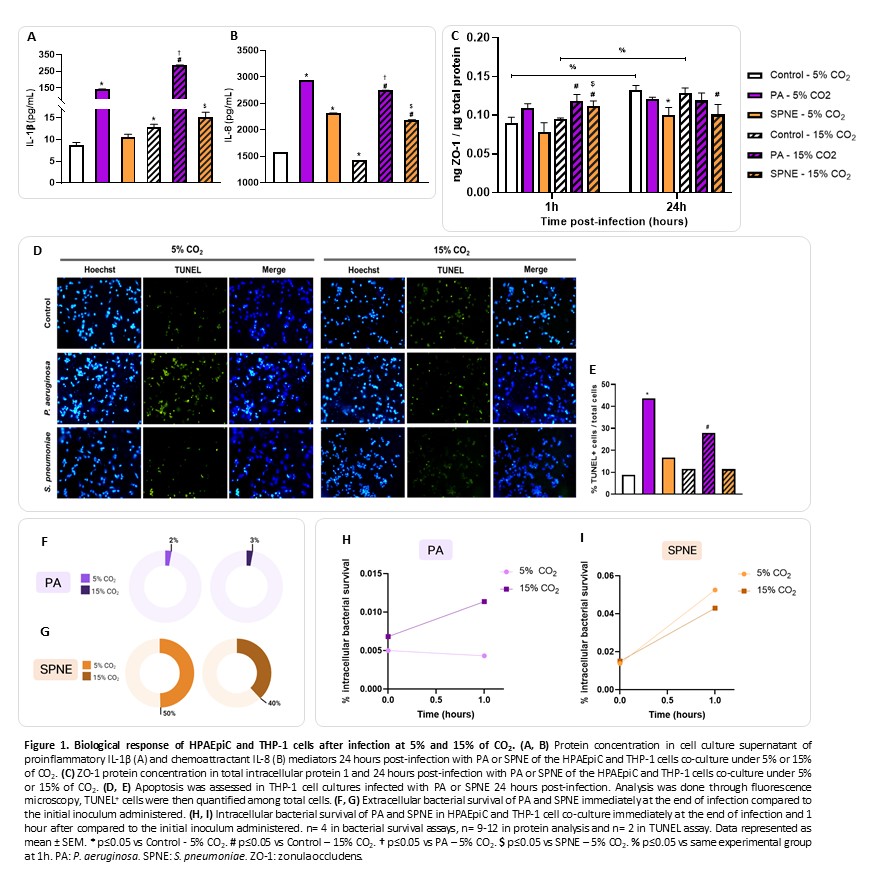Abstract
Objective. To evaluate the bacterial survival and biological response of the co-culture of alveolar epithelial cells (HPAEpiC) and macrophages as a result of infection with different types of bacteria, Pseudomonas aeruginosa (PA) and Streptococcus pneumoniae (SPNE), under different CO? concentrations.
Methods. Co-cultures of HPAEpiC cells and THP-1 cells differentiated to macrophages were separately infected with PA or SPNE for 1h at 37°C under normocapnic (5% CO?) or hypercapnic (15% CO?) conditions. Extracellular and intracellular bacterial survival were assessed after infection.
24h after infection intracellular and extracellular proteins were analyzed by ELISA for inflammatory mediators (IL-1?, IL-8, CCL2). Cell binding ZO-1 protein was measured 1h and 24h after infection. Apoptosis was also evaluated by cytometry and TUNEL assay.
Results. Infection with PA or SPNE in a culture of HPAEpiC and THP-1 cells under hypercapnia increases inflammation, decreases phagocyte chemotaxis, and enhances ZO-1 production after infection but not after 24h (Fig1A-C). Moreover, PA-infected THP-1 cells show decreased apoptosis under hypercapnia (Fig1D-E).
Regarding bacterial survival, hypercapnia could allow the intracellular establishment of PA and SPNE (Fig1H-I).

Conclusion. The hypercapnic condition on bacterial-infection response could play a detrimental role on PA and SPNE infection.